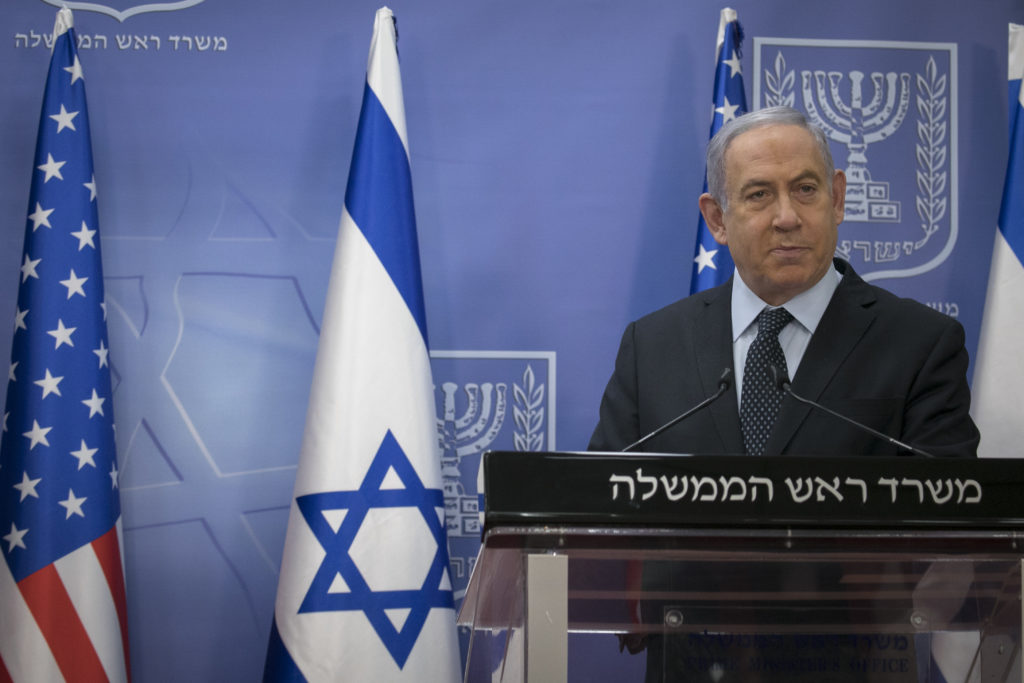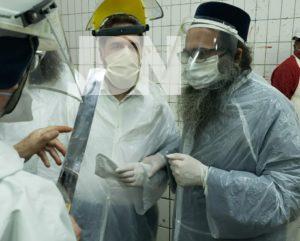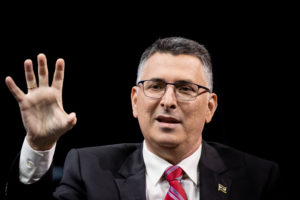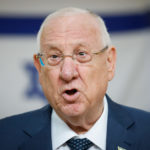The former deputy head of the Mossad said Prime Minister Benjamin Netanyahu has poorly managed both the coronavirus pandemic and the struggle against the Iranian threat, in excerpts of an interview published Thursday.
“The bottom line was poor management. I saw poor management,” the recently retired official told the Yedioth Ahronoth daily in an interview set to be published in full on Friday.
“Compare the coronavirus to the treatment of the Iranian nuclear program: The amount of uranium Iran has accumulated, its regional spread — it’s bad. But the operations we carried out along the way? Amazing,” he said. “Same with the coronavirus. Soon [the death toll will reach] 6,000 victims, but take a look at that vaccination campaign. Great, isn’t it?”
The senior official is known only by his Hebrew initial, “Alef,” and chose to step down last month when he was passed over for the top job at the spy agency, a decision by Netanyahu that surprised many in the defense establishment due to Alef’s vast experience.
That experience included heading up the team of Mossad agents behind the operation to steal Iran’s nuclear archive in 2018, which Alef said was the “operation of the century.”
The operatives reportedly broke into the building outside Tehran where the trove was housed, removed the files and disks, and smuggled them back to Israel the same night.
The content of the files showed that Iran had worked to develop nuclear weapons. and the operation is thought to have contributed to the decision by the United States to leave the nuclear deal.
However, he warned that the independence of the spy agency was in danger and said he was against the recent spate of publications of top-secret operations.
Alef said that there was an overt and covert program to pressure then-US president Donald Trump to withdraw from the nuclear deal, saying the Mossad undertook a series of actions to make it happen while it “implemented the directive of the political echelon.”
“How do you dismantle [the nuclear deal]?” Alef asked. “Obviously, if you manage to get the Americans out of the agreement, it will collapse until it is finally finished. We prepared accordingly, we started the moves and the archive was one of them.”
But he criticized the result, saying the current situation was not an improvement.
“We have a situation where there is uranium enrichment in Fordo, there is work in Kashan, there is work in Natanz, they have accumulated 2.5 tons of enriched uranium, and now also the advanced centrifuges,” Alef said. “We have a Democratic administration [in the US] and our situation is worse today than it was at the time of the nuclear deal. They did not stop their regional expansion for a second — they are producing missiles.”
Natanz is Iran’s main nuclear enrichment plant. An explosion at the site last year, which foreign media reports have attributed to Israel or the US, damaged an advanced centrifuge development and assembly plant.
Alef additionally said the main issue with Iran was the existential threat posed by nuclear weapons, but the Israeli government hasn’t been treating it as such, demanding that all negotiations with Tehran include the issues of surface-to-air missiles, regional expansion and terrorism — pushing the nuclear program down the list of priorities.
“In the last two years, I think Israel has been compromising on the nuclear issue because it wants to make maximal achievements, and in the meantime, [Iran] is accumulating fissile material,” Alef said.












